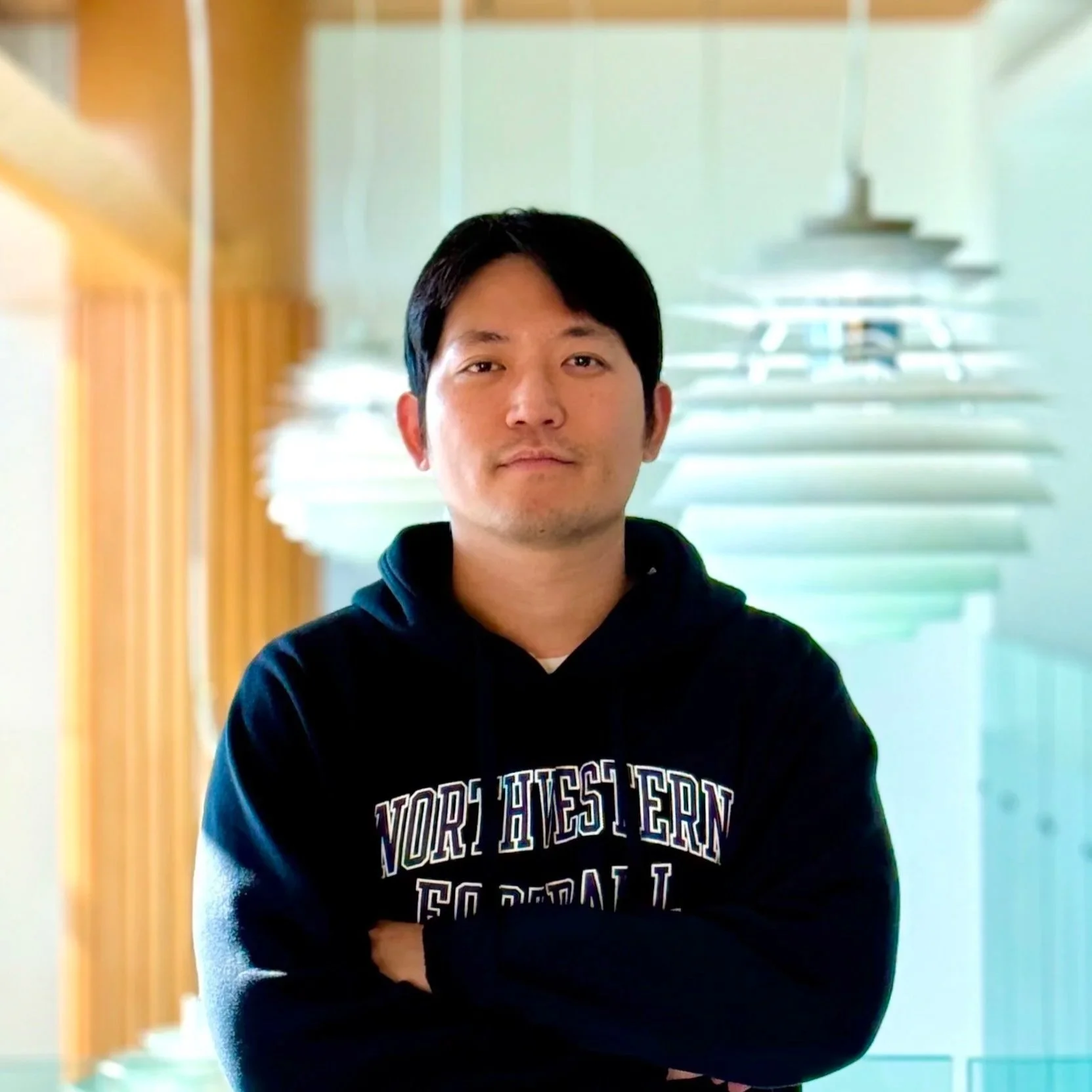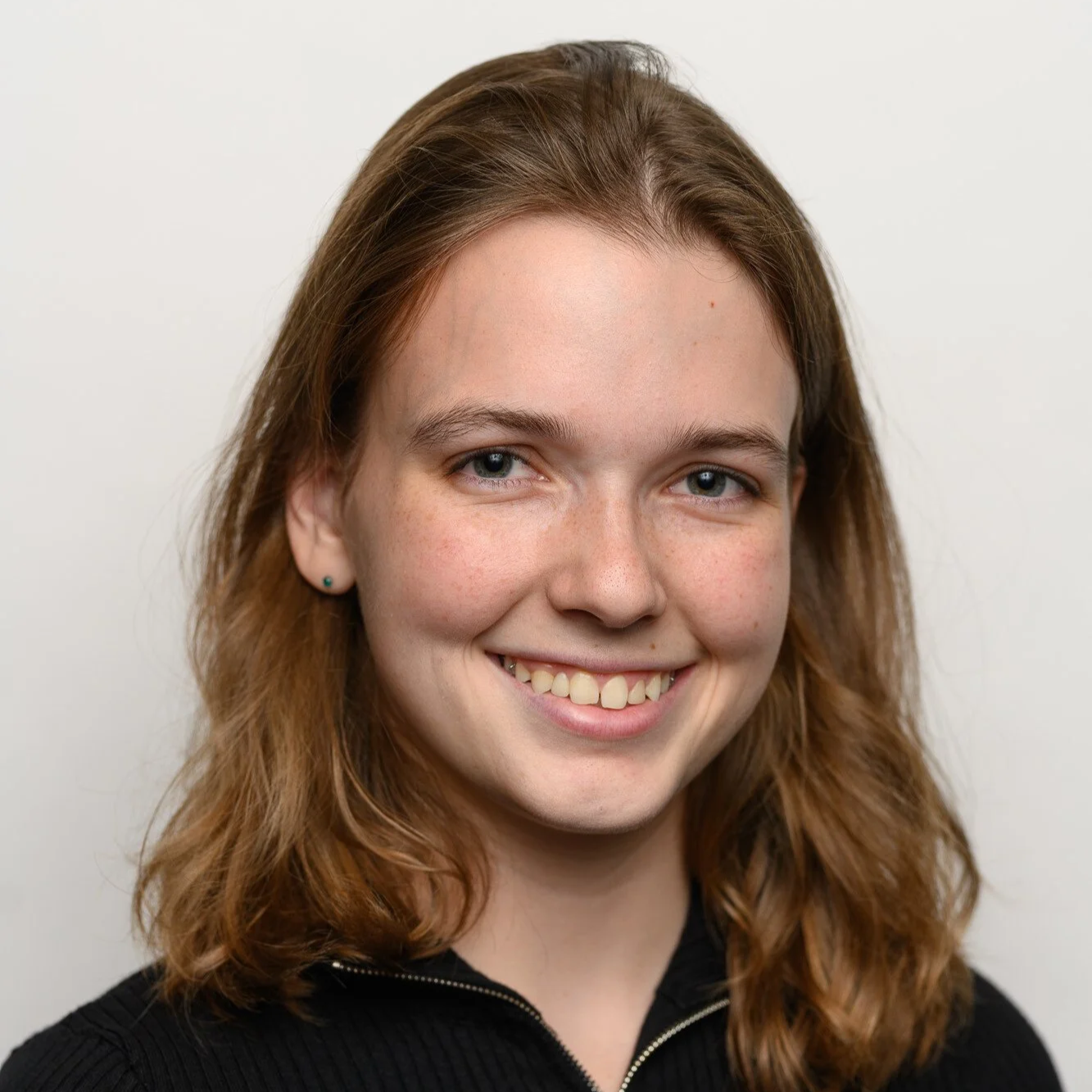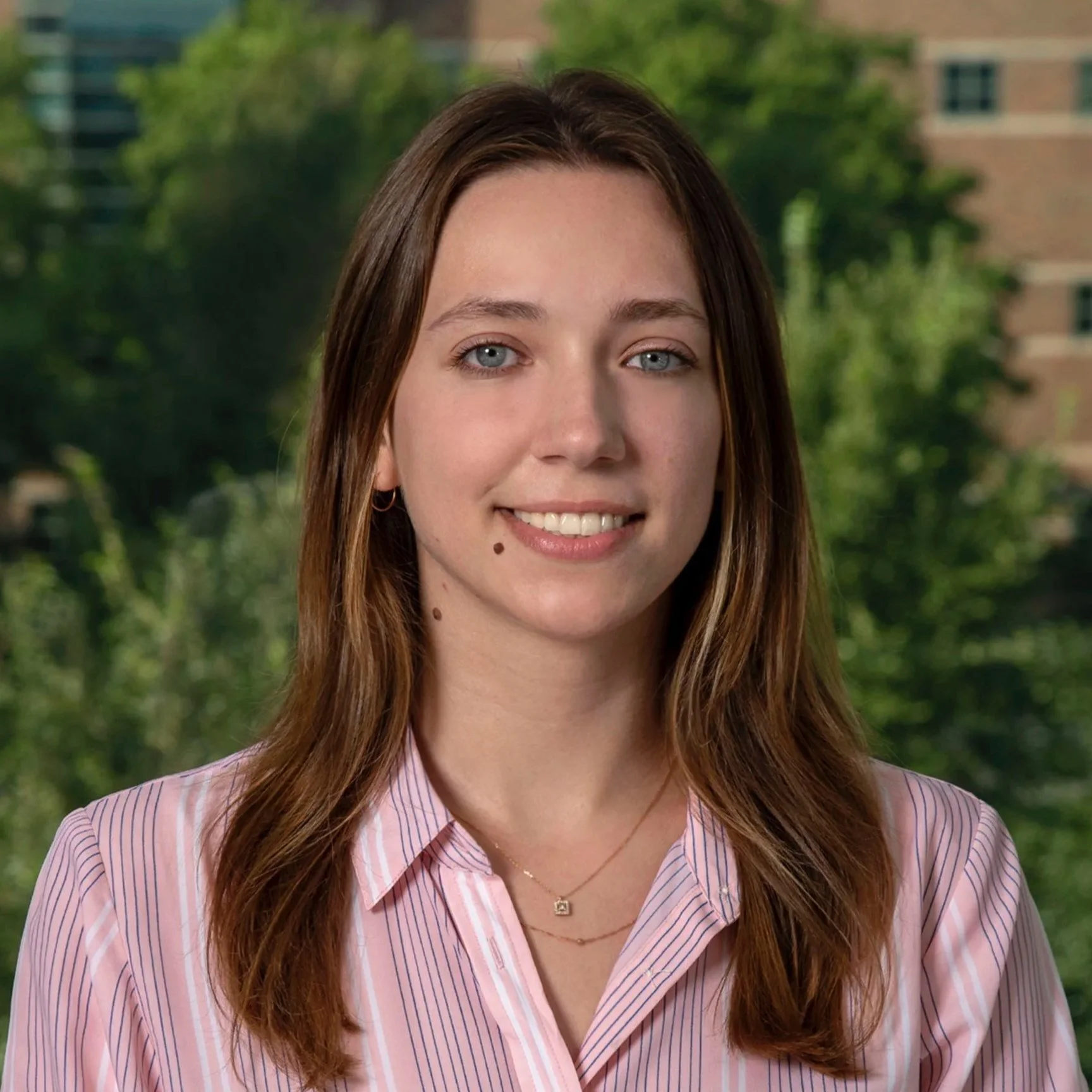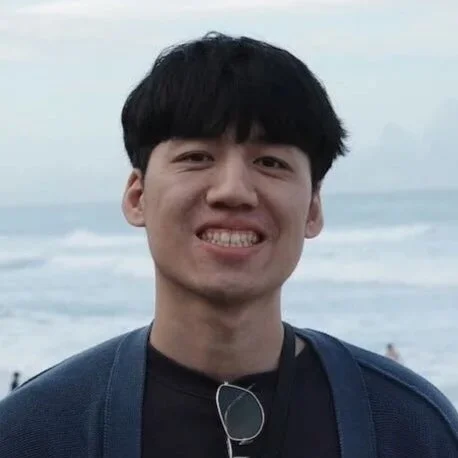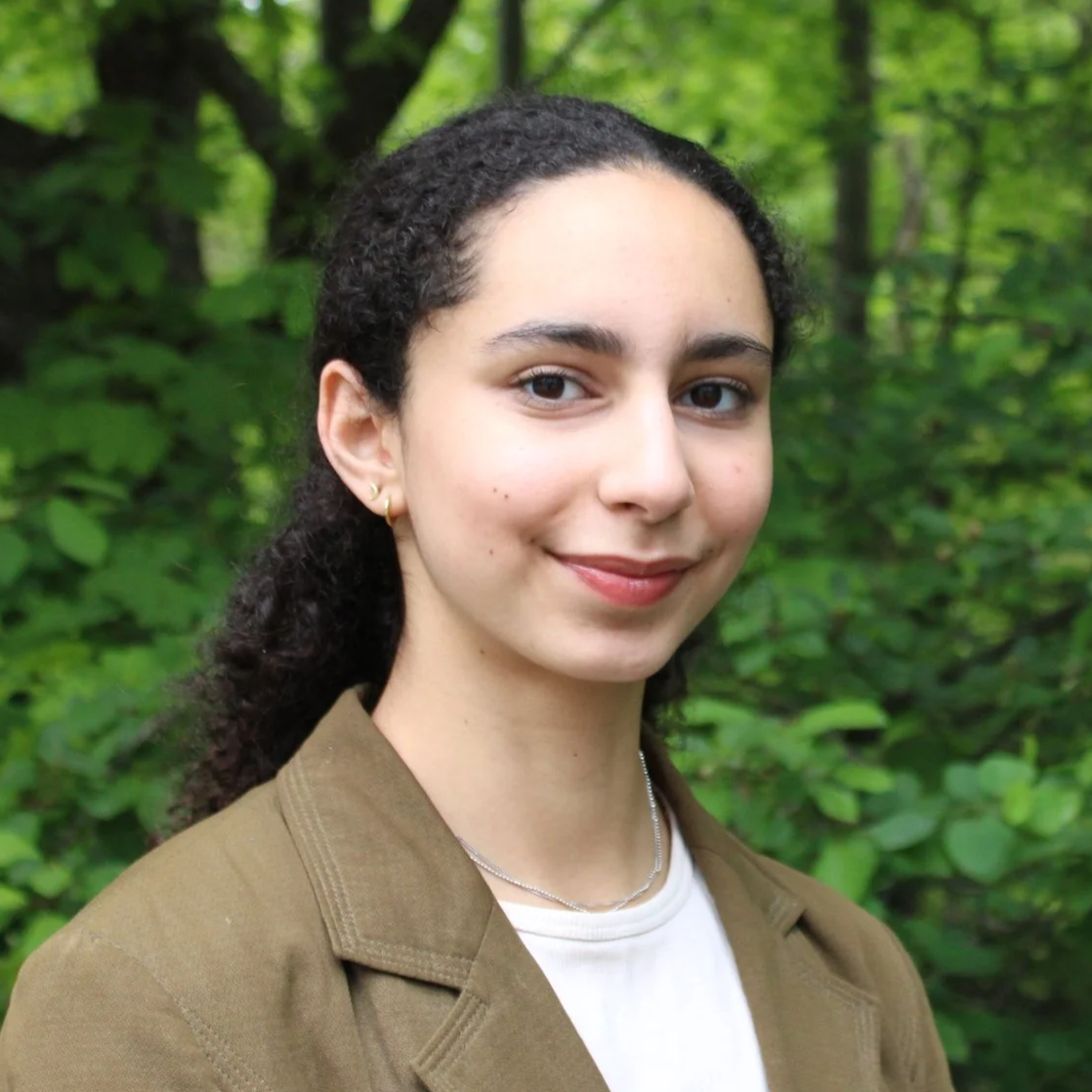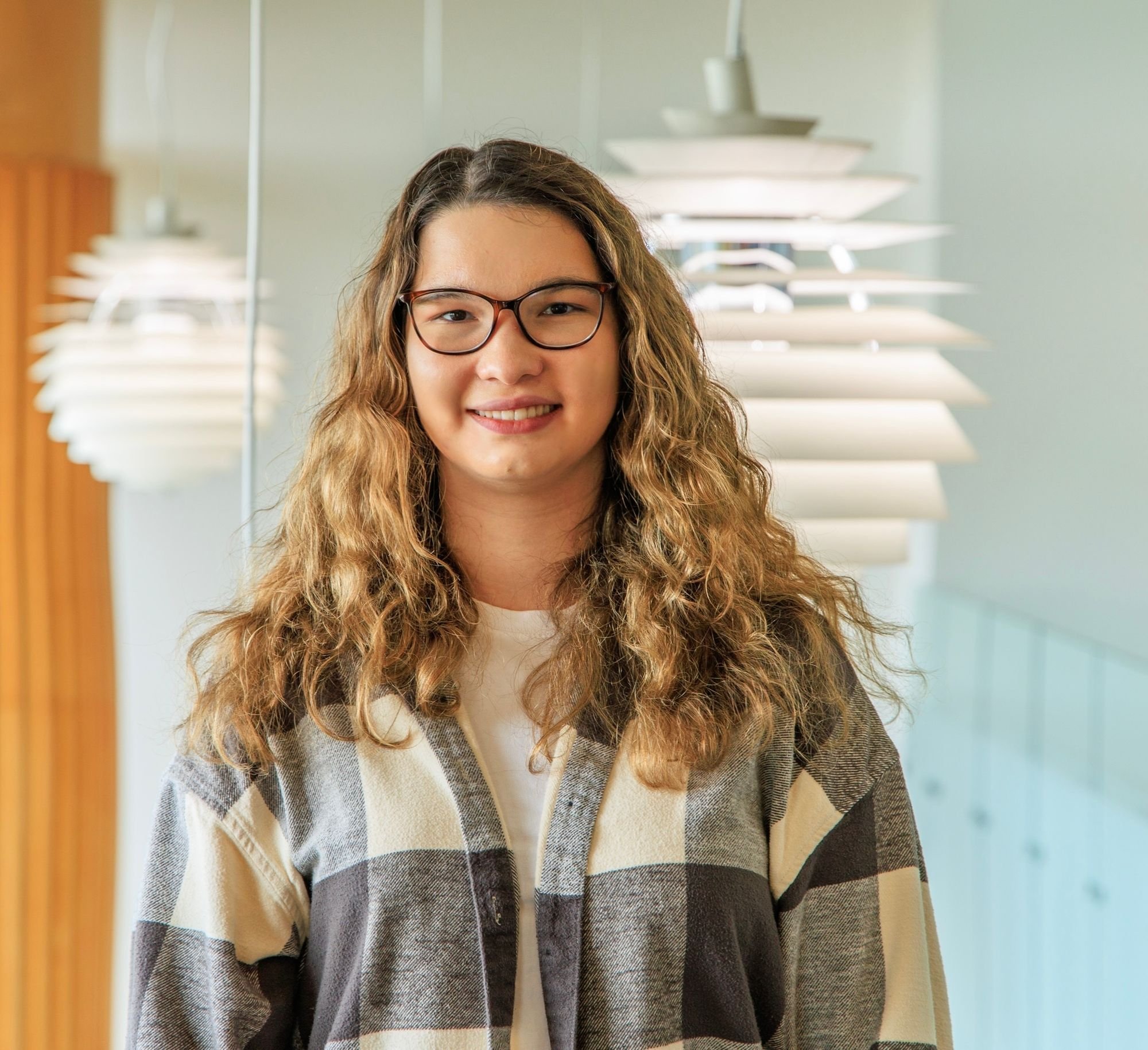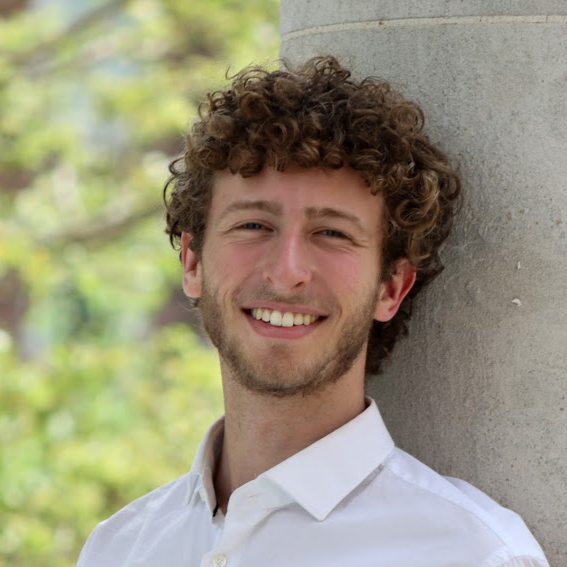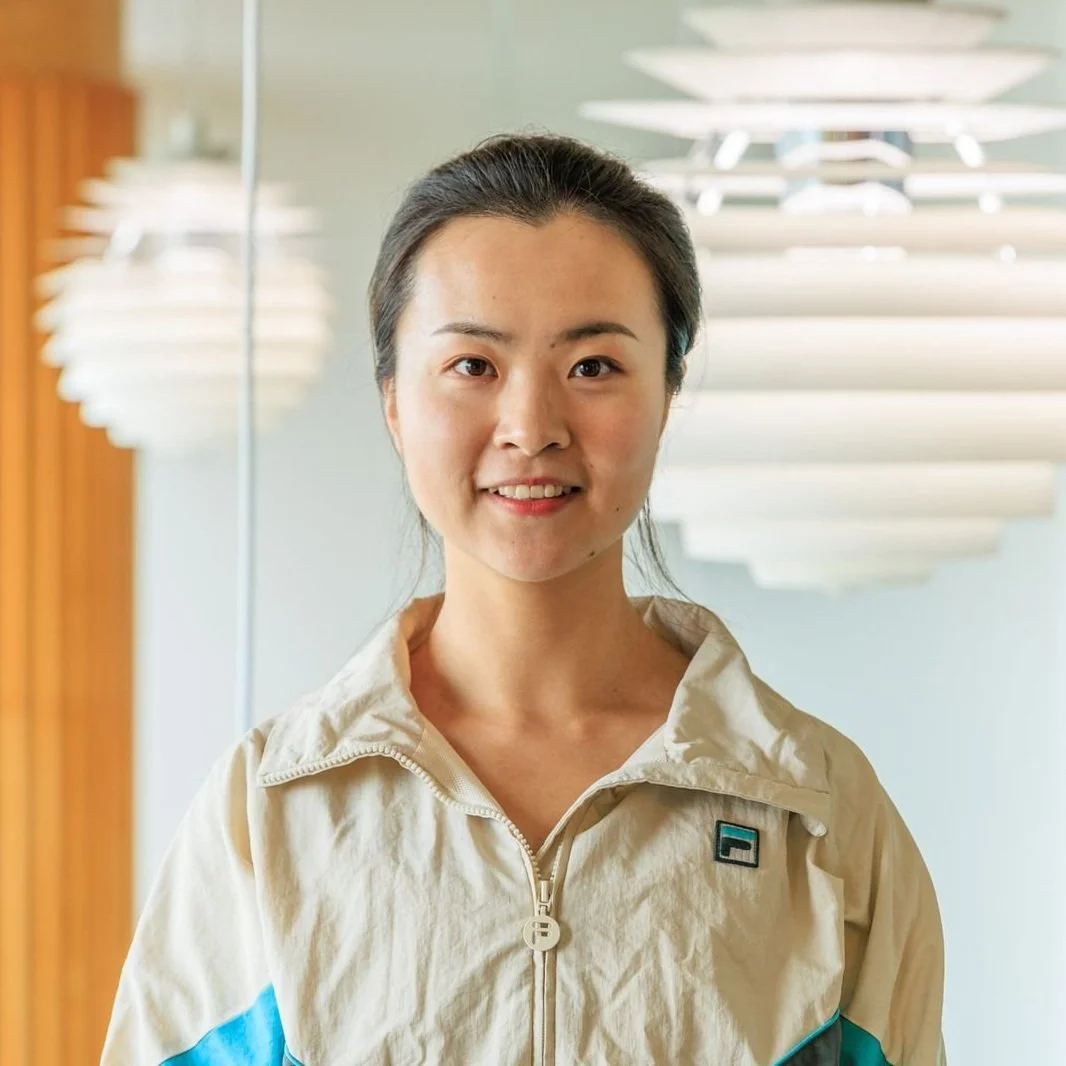PRINCIPAL INVESTIGATOR
BIO
Jonathan earned his B.Sc. in 2006 from Cornell University (Ithaca, NY). He then moved to Stanford University (Stanford, CA) where he earned a M.Sc. and Ph.D. in Materials Science and Engineering studying structure and electronic transport properties of organic electronics materials. In 2012, he joined the Dept. of Bioelectronics at the Ecole des Mines de Saint-Etienne in France as a Marie Curie post-doctoral fellow, working on conducting polymer based devices for bioelectronic recording and stimulation. Jonathan spent 2015-2016 as a member of the research staff at the Palo Alto Research Center (Palo Alto, CA) before joining the Department of Biomedical Engineering at Northwestern University in 2017.
Research Faculty
BIO
Abhijith started his engineering journey during his undergrad at TKMCE, Kollam. He primarily focused on robotics, developing co-operating robots, self-balancing robots, and speech recognition. He launched his research career during his master’s in Nanotechnology at NIT Karnataka under the supervision of Prof. Anandhan Srinivasan. He worked on developing highly porous electro-spun polymer gel electrolytes for Li ion and Na ion batteries. Later he moved to a highly interdisciplinary team at NTU Singapore, working on various kinds of materials such as perovskites and organic semiconductors under the supervision of Prof. Leong Wei Lin. Thanks to the vibrant colleagues, he prolifically collaborated with various research teams and worked on developing photodetectors, OFETs, OECTs, and neuromorphic devices. He earned his PhD for revealing the fundamentals of ionic liquid doping for enhancing solid state OECT (SSOECT) performance. In Rivnay lab, he is working on an implantable ‘living pharmacy’ called NTRAIN (Normalizing Timing of Rhythms Across Internal Networks of Circadian Clocks) that focuses on controlling body’s sleep/wake cycles.
Research Staff
Michelle Lotz
Research Technician
BIO
Michelle graduated from Alfred University in 2019 with a BS in Ceramic Engineering and a BFA in Sculpture. During her time as an undergraduate, Michelle researched under Dr. Alexis Clare where she developed a photoluminescent silicate glass using zinc and copper additives. Before joining the Rivnay group in 2024, she worked as a process engineer working with optical ceramics. In her free time, Michelle continues to make art with a variety of materials including silicone and resin. Her personal art website is www.michellelotz.com
Post-Doctoral Researchers
Catherine Beaumont
Post-Doctoral Researcher
BIO
Catherine earned her B.S. in Chemistry from Laval University, Canada, where she conducted undergraduate research in peptide synthesis under Professor Éric Biron and polymer chemistry with Professor Mario Leclerc. She continued her academic journey at Laval University, obtaining her M.Sc. in 2020 and her Ph.D. in 2024. During her Ph.D., under the guidance of Professor Leclerc, she developed innovative water-soluble polymers for printed organic electronics. In recognition of her work, she was awarded an NSERC postdoctoral fellowship and joined the Rivnay Lab in 2024 as a postdoctoral scholar. Her current research interests lie in synthesizing new conjugated polymers for lipid bilayer stabilization. Outside the lab, Catherine enjoys figure skating, snowboarding and reading.
Priscila Cavassin
Post-Doctoral Researcher
BIO
Priscila joined the Rivnay lab in 2024 as a MRSEC Postdoctoral Scholar. She earned her M.Sc. in Applied Physics from the University of São Paulo in 2019. She then moved to Switzerland and obtained her PhD in Chemistry from the University of Bern. Her research focuses on understanding fundamental properties of conjugated polymers and 2D materials, using different characterization techniques to explore them. In her free time, she likes studying music and playing the flute or being outdoors.
BIO
Yebin Lee obtained her B.Eng. in Chemical Engineering and MASc in Chemical Engineering and Materials Science from Chung-Ang University, Korea. From 2013 to 2017, she worked as an engineer for Samsung Display Co., Ltd., Korea, and developed flexible display modules. She then moved to Canada and received a Ph.D. in Chemical Engineering (Nanotechnology) from the University of Waterloo in 2022 under the supervision of Prof. Michael Tam. During her Ph.D. study, Yebin focused on the surface engineering of sustainable nanomaterials and applied them to various advanced applications. After receiving her Ph.D. degree, she held a postdoctoral position at the same research group, during which she applied her specialties to various templates for practical applications. Yebin joined the Rivnay Lab as a postdoctoral fellow at Northwestern University in 2024. Currently, her work is focused on developing resilient electrochemical aptamer-based biosensors. Her current research interests include a fundamental understanding of surface chemistry and materials science to overcome fouling and degradation issues of biosensors in biological environments. In her free time, she likes running, reading, writing, and playing board games.
BIO
Giovanni Maria Matrone (Gianmaria) received his Master’s degree in Materials Engineering and Nanotechnology at the Politecnico of Milan in 2015. During his studies he spent a term as a visiting student at Imperial College London. In April 2016, he joined the Innovative Training Network (ITN) named INterFaces in Opto-electRonic Thin Film Multilayer Devices (INFORM) as an EarlyStageResearcher (ESR). He was also a PhD student supervised by Prof. Natalie Stingelin at Imperial College London, his host institution. He performed secondments at University of Bayreuth, Technion University of Israel and National Institute of Standards and Technology (NIST). He defended his PhD thesis ( “Understanding structure-property relationship of bulk hetero-junction polymer-fullerene blends”) in September 2019. Soon after, in October 2019, he joined the Tissue Electronics Laboratory at the IIT Naples as postdoctoral researcher focusing on neuromorphic electronics devices with neurotransmitter-mediated plasticity. In the frame of an ongoing institutions collaboration, he then moved to Eindhoven University of Technology expanding his research towards neuromorphic spiking circuit. He joined the Rivnay Lab in September 2022. His current research focuses on the design of OECT-based spiking circuit for sensory coding and neuromorphic computing applications. In his free time, he likes running/hiking, playing video-games/ board-games and reading fantasy/sci-fi books.
BIO
Daeyeon earned dual B.S. degrees in Civil Engineering and Mechanical Engineering from Korea University, South Korea. He began his research career in Prof. Seung Hwan Ko’s group at Seoul National University, where he developed fabrication processes to enhance the properties of conducting polymers through laser–material interactions. He then worked as a Staff Engineer at the Semiconductor R&D Center of Samsung Electronics, developing fabrication processes for EUV photomasks. In 2025, he was awarded a postdoctoral fellowship from the National Research Foundation (NRF) of Korea and joined the Rivnay Lab. His current research focuses on developing fabrication strategies to improve the performance of organic semiconductors and biohybrid electronic devices.
GRADUATE STUDENTS
BIO
Anna graduated from the University of Kentucky in 2025 with a B.S. in Biomedical Engineering. As an undergraduate, she researched macrophage physiology following spinal cord injury. Anna joined Northwestern's Biomedical Engineering PhD program and the Rivnay group in 2025. Her current research focuses on organic bioelectronic platforms for controlled ionic delivery and electrically active biomaterials. In her spare time, she enjoys rock climbing, playing her piano, and enjoying the Chicago food scene.
BIO
Quinn earned his B.S. in Biomedical Engineering and B.A. in Philosophy at the University of Colorado Boulder in 2024. He began undergraduate with research on the mechanobiology of neuronal chromatin under Dr. Corey Neu, but migrated to Dr. Robert McLeod's lab to study the biosensing applications of Organic Electrochemical Transistors in agriculture and bioastronautics. He also worked as an Emergency Medical Technician for 2 years through Stadium Medical. In the Rivnay lab, his research interests include investigating the application of OMIECs to integrate neuromorphic circuits and point-of-care sensing. Outside of the lab, he enjoys skiing, backpacking, bouldering, reading, and running.
BIO
Rachel graduated from Fordham University in 2021 with a B.S. in Chemistry. During her time as an undergraduate, Rachel researched under Dr. Ipsita Banerjee where she developed peptide-based nanoparticles for applications in tissue regeneration. Rachel joined Northwestern’s Biomedical Engineering PhD program in 2021. Her current research interests involve the development of hybrid conductive nerve allografts with incorporated thin-film electronics for applications in neural tissue monitoring and regeneration. In her spare time, she likes to play board games, read, and rock climb.
BIO
Naedum earned his B.S. in Biomedical Engineering in 2020 from Cornell University and worked on theranostic silica-core nanoparticles with CT and optical imaging capabilities with Professor Ulrich Wiesner. He then began his MD-PhD training at Northwestern University’s Feinberg School of Medicine in the fall of 2020. After completing his pre-clinical training and passing USMLE STEP 1, he began his PhD training in the Biomedical Engineering department at Northwestern under the co-mentorship of Jonathan Rivnay and Thomas Meade. He has been focused on the design of self-assembled monolayers to improve stability and function of theranostic gold substrates during in-vivo applications. He specifically applies this work to improving in-vivo performance of electrochemical biosensors and theranostic gold nanoparticles. In his spare time, he likes to play the french horn, go to the gym, visit local cafés and restaurants with his wife, and serve at his local church.
BIO
Isaiah Daniel Duplessis earned his B.S. degrees in Phtiscs and Chemistry from the University of Richmond in 2020. During his undergraduate career his research focused on cross-coupling catalysts. Joining the Materials Science and Engineering department in 2020 his current work focuses on adapting conductive oxide materials for use in bioelectronics. His hobbies are following the NBA, playing fighting games with his friends, and listening to pop and house music.
BIO
Victoria graduated from the University of Illinios at Urbana-Champaign in 2023 with a B.S. in Bioengineering. During her undergraduate career, Victoria worked in Dr. Rashid Bashir's Laboratory of Integrated Biomedical Micro/Nanotechnology and Applications. She worked with microfluidics-based point-of-care diagnostics devices for the detection of various conditions including sepsis, COVID-19, Zika, and breast cancer. Victoria's primary interests are using electrochemical aptamer-based biosensors for diagnostics purposes in implantable devices. She is currently exploring the chemistry involved in creating anti-fouling surfaces to improve the longevity of the sensors in biological environments. In her free time, she likes to paint, knit, and bake.
BIO
Albert earned his B.S. and M.S. degrees in Chemical Engineering from National Cheng Kung University, Taiwan, where he conducted research on nanocomposite hydrogels and ionogels for 3D printing and wearable sensors in Prof. Sheng-Sheng Yu’s lab. He then worked as an R&D engineer at TSMC for two years, developing epitaxy processes for the 1.4 nm node. His current research focuses on the fundamental studies of mixed ionic–electronic conductors, using advanced characterization techniques to investigate the structure–property relationships of conjugated polymers and 2D materials. Outside of the lab, Albert enjoys the simple pleasures of life—finding a quiet corner in a local cafe, catching a movie, or experimenting with new recipes in the kitchen. He also stays active through traveling, working out, and following sports.
BIO
Zachary graduated from Lehigh University in 2021 with a B.S. in Integrated Natural Science and Engineering. During his time as an undergraduate, Zach researched under Dr. Julie Haas where he studied connections in the brain and developed computer models for networks of neurons. Zach joined Northwestern’s Biomedical Engineering PhD program in 2022. His current research interests involve the development of neuromorphic circuits and synaptic OECTs. In his spare time, he likes to hike, read, and play board games and video games.
BIO
Junyi graduated from University of Wisconsin – Madison in 2023 with a B.S. in Materials Science and Engineering and a double major in Chemistry. His undergraduate research focused on computational phase field modelling and designing piezoelectric materials under Dr. Jiamian Hu. Junyi joined the Rivnay Group as a PhD student in Materials Science and Engineering in 2023. His current work involves the materials design and fabrication of in-vivo oxygenation devices for applications such as life support and wound recovery. In his free time, he enjoys cooking, biking, playing badminton, board games and video games with friends.
BIO
Zaina earned her B.S. in Materials Science and Engineering in 2025 from Cornell University. As an undergraduate, she worked under Professor Eve Donnelly on FTIR spectroscopy of diabetic patients and biochemical assay analysis of fluorescent collagen crosslinks in patients who have undergone total knee arthroplasty. She joined Northwestern as a PhD student in Materials Science and Engineering in 2025. As a joint student with professors Jonathan Rivnay and Shana Kelley, she is working to optimize aptamer-based biosensors for different proteins and molecules. In her free time, she enjoys going to the gym, crocheting, and learning languages.
BIO
Beliz earned her B.S. in Chemical and Biomolecular Engineering with a minor in Biomedical Engineering from Georgia Institute of Technology in 2023. During first two years of her undergrad, she worked in Coskun Lab at Georgia Tech on spatial organizations of cells. Later, she joined Stingelin Lab at Georgia Tech, where she worked with hybrid hydrogels to study their structure-property relationship and mechanical properties until she graduated. She joined Northwestern as a Ph.D. student in Materials Science and Engineering in 2023. Her research in the lab focuses on lipid-bilayer sensing. In her free time, she enjoys playing instruments, singing and photographing.
BIO
Zander earned his B.E. in Biomedical Engineering from Vanderbilt University in 2025, with a double major in Medicine, Health, and Society. As an undergraduate, he conducted research under Dr. Ethan Lippmann, using in vitro models to study the progression of Alzheimer’s disease in stem cell cultures. Zander joined the Rivnay Group in 2025, where his current research focuses on electrochemical aptamer-based sensors for diagnostic applications in implantable devices. Outside of lab, Zander enjoys playing music, going to concerts, hiking, traveling, and trying new food.
BIO
John earned his MS and BS from Northwestern in the departments of Electrical Engineering and Manufacturing and Design Engineering, respectively. His passion for cutting-edge health technology led him to the Rivnay Group, in which he develops biomolecular sensors for lab-grown tissues, which are robust tools to study inflammation. Beyond the lab, he spends his time at the gym, producing 90’s-inspired house and techno music, and reading.
BIO
Xinran graduated from Shanghai Jiao Tong University in 2021 with a M.S. in Biomedical Engineering. During her graduate career, Xinran researched under Dr. Shiyi Zhang where she worked on skin tissue injury repair and translated the results to a therapeutic solution for the patients. She joined Northwestern as a PhD student in 2021. Currently, Xinran is exploring how conductive materials can be used for biohybrid actuator stimulation and sensing. During her spare time, she enjoys backpacking, dancing, baking, and cooking. She has an adorable Pomsky Bubble!
MAster’s studentS
BIO
Lucía earned her B.S. in Bioengineering with a minor in Mathematics from Hofstra University in 2022. During her time there she worked on cardiovascular graft replacements field and bioreactor design in the Merna Lab specifically in the cell and tissue engineering field. Adjacently, she completed a Co-op at Senti Biosciences optimizing CAR-NK cell therapies. After graduating she worked as a Quality Engineer for Uromedica Inc., producing medical implants and managing quality systems. She joined Northwestern in 2024 as a Biomedical Engineering M.S. She’s currently working on biohybrid implant design and testing, and is interested in the interface work between implants/electronics and cells. In her free time she enjoys dancing, spending time with friends, and exploring new parts of Chicago.
Alumni
Undergraduates
Shiv Patel 2024
Chris Woodard 2024
Manideep Reddy 2024
Eliana Davis 2023
Malva De Boor 2023
Ella Kelly 2023
(Kalamazoo College)
Hans Xu 2023
Elijah clarke 2022
Rob Ciechowski 2020
Julianna Trujillo 2019
(Santa Clara, IIN REU)
Beatrice Makdah 2018
Katrina Barth 2017
(Wake Forest)
Yudai Okabe 2017
Kyle Rutledge 2017
Master’s Students
Rosie Huerta 2025
Julie Kang 2025
Chloe Lenker 2024 (Philips)
Scott Beard 2023 (Shure)
Peter Kouassi 2023 (AbbVie)
Boyuan Sun 2022
Mayra Alcaraz 2019
(Abbot)
Lily Dalka 2019
(Accenture)
PhD Students
Dilara Meli 2025 (National Institute of Standards and Technology)
Emily Schafer 2024 (EPFL)
Ruiheng Wu 2024 (Stanford)
Rebecca Keate 2023 (Cellmend technologies)
Reem Rashid 2022 (Fresenius Kabi)
Post-doctoral Fellows
Xudong Ji 2025 (University of Science and Technology of China)
Abijeet Mehta 2024 (UT Rio Grande Valley)
Hanie Yousefi 2024 (Arpa-H)
Bryan Paulsen 2023 (Notre Dame)
Joshua Tropp 2023
(Texas Tech)
Anthony J. Petty 2020 (Solenis)
Vishak Venkatraman 2019 (Intel)









